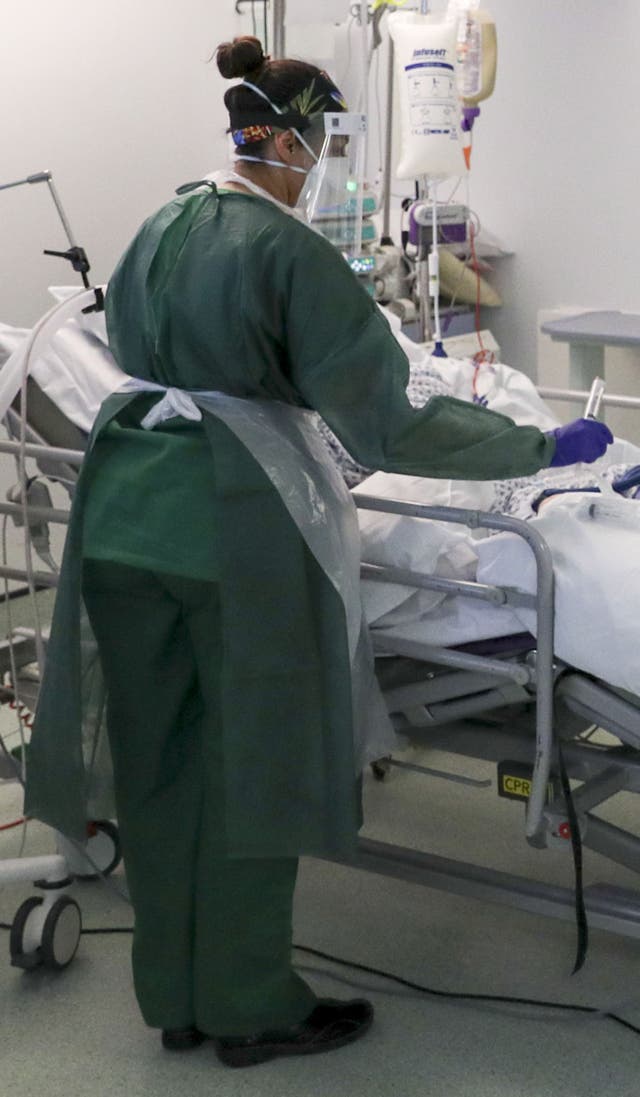
Long Covid sufferers are set to benefit from £19.6 million worth of new research programmes into the condition, the Government has announced.
The suite of 15 new research studies, backed by Government funding through the National Institute for Health Research (NIHR), are aimed at helping to better understand the condition, improve diagnosis and find new treatments.
Research from the NIHR and UK Research and Innovation shows that up to one in three people diagnosed with Covid continue to experience chronic symptoms for months after their initial diagnosis.
The new research projects will allow researchers across the UK to draw together their expertise from analysing long Covid among those suffering long-term effects and the health and care professionals supporting them.
Among the projects will be the largest long Covid trial to date, recruiting more than 4,500 people with the condition to test the effectiveness of existing drugs on treating the lasting symptoms.
Health Secretary Sajid Javid called the research programmes “life changing” for long Covid sufferers.
 Up to one in three people diagnosed with Covid are expected to suffer long-term persistent symptoms (Steve Parsons/PA)
Up to one in three people diagnosed with Covid are expected to suffer long-term persistent symptoms (Steve Parsons/PA)
He said: “Long Covid can have serious and debilitating long term effects for thousands of people across the UK which can make daily life extremely challenging.
“This new research is absolutely essential to improve diagnosis and treatments and will be life-changing for those who are battling long-term symptoms of the virus.
“It will build on our existing support, with over 80 long Covid assessment services open across England as part of a £100 million expansion of care for those suffering from the condition, and over £50 million invested in research to better understand the lasting effects of this condition.”



Why are you making commenting on The Herald only available to subscribers?
It should have been a safe space for informed debate, somewhere for readers to discuss issues around the biggest stories of the day, but all too often the below the line comments on most websites have become bogged down by off-topic discussions and abuse.
heraldscotland.com is tackling this problem by allowing only subscribers to comment.
We are doing this to improve the experience for our loyal readers and we believe it will reduce the ability of trolls and troublemakers, who occasionally find their way onto our site, to abuse our journalists and readers. We also hope it will help the comments section fulfil its promise as a part of Scotland's conversation with itself.
We are lucky at The Herald. We are read by an informed, educated readership who can add their knowledge and insights to our stories.
That is invaluable.
We are making the subscriber-only change to support our valued readers, who tell us they don't want the site cluttered up with irrelevant comments, untruths and abuse.
In the past, the journalist’s job was to collect and distribute information to the audience. Technology means that readers can shape a discussion. We look forward to hearing from you on heraldscotland.com
Comments & Moderation
Readers’ comments: You are personally liable for the content of any comments you upload to this website, so please act responsibly. We do not pre-moderate or monitor readers’ comments appearing on our websites, but we do post-moderate in response to complaints we receive or otherwise when a potential problem comes to our attention. You can make a complaint by using the ‘report this post’ link . We may then apply our discretion under the user terms to amend or delete comments.
Post moderation is undertaken full-time 9am-6pm on weekdays, and on a part-time basis outwith those hours.
Read the rules hereLast Updated:
Report this comment Cancel